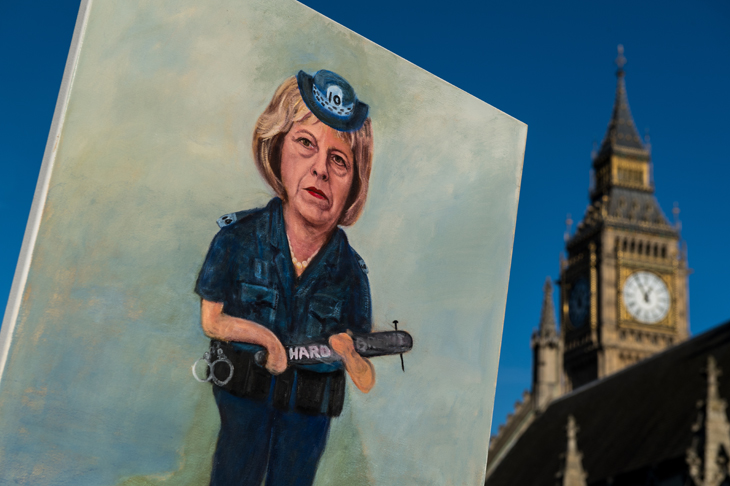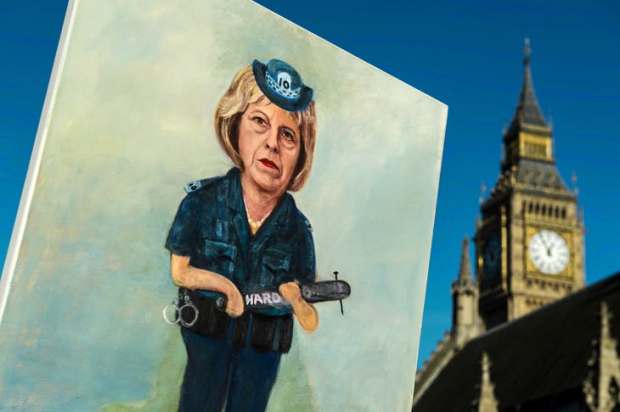Parliament is the cockpit of the nation, but MPs have been on autopilot rather a lot in the past 40-odd years. Ever since the United Kingdom joined the European Economic Community, more and more powers have been passed away from Parliament to Brussels and its institutions. Brexit will see these powers come flowing back to Westminster. So it was appropriate that the Supreme Court has decided that Parliament must legislate for the triggering of Article 50, the two-year process by which this country will leave the EU.
For MPs to vote against Article 50 would be to vote against the referendum result itself; it says nothing about the terms on which Britain will leave the EU. This is why the government will get its bill through both the Commons and the Lords with less difficulty than many expect. The Tory leadership in the Lords is confident that the upper house’s instinct for self-preservation will kick in and it won’t try to block the whole process.
James Forsyth and Henry Newman analyse what the Supreme Court ruling means for parliamentary sovereignty:
Politically, the Article 50 vote will be more difficult for Labour than the Tories. The Tories are relatively united on Brexit at the moment — even the ardent Remainer Anna Soubry praised Theresa May’s speech last week — and if the Conservative rebellion only takes the form of demanding a white paper on the government’s negotiating stance, then that is easily enough addressed. But the Labour divisions over the issue are far more existential. Those MPs whose constituencies voted Leave are worried about a Ukip challenge. They don’t want to open themselves up to the charge of obstructing the referendum result. Many of those with seats that voted heavily Remain, however, want to stand up for what they and their constituents believe. There is also concern about allowing the Liberal Democrats, with their ‘Ukip of Remain’ strategy, to become the anti-Brexit party, which would make them a threat to Labour in these cosmopolitan seats in the medium term. Compounding all this is the awful relationship between Jeremy Corbyn and his own MPs: whenever he talks about whipping a big vote, they become more inclined to rebel.
Perhaps more significant than Labour’s division will be the SNP’s unity. The SNP will try to put down as many amendments as possible, in the hope of being defeated as many times as possible. The more times they are beaten in the division lobbies, the more opportunities they’ll have to claim that the wishes of the Scottish people and their elected representatives are not being respected. Having said that, Theresa May’s decision to take the UK out of the single market does make things more difficult for the SNP. In any second independence referendum, Scottish voters would have to choose between leaving the UK single market, to which 63 per cent of Scotland’s exports go, or the EU one, which takes 18 per cent of its exports.
But the vote on Article 50 will just be the beginning of Parliament’s revival. The Bill which will put all EU law into UK law will offer Parliament plenty of chances to flex its muscles. The government would like Parliament simply to transpose EU law into UK law. But even this isn’t as straightforward as it sounds; lots of EU law refers to institutions that the UK will have left behind post-Brexit. The bigger issue, however, is that many Tory backbenchers regard the wholesale importation of EU law into UK law as a missed opportunity. They point out that there is a chance to use this process to demonstrate how Britain will be a different place after Brexit. For instance, scrubbing the clinical trials directive would show pharmaceutical companies and medical researchers that Britain will be an easier place in which to work once it has left the EU.
Of course, once Britain is no longer a member of the EU, the priority for the government will be negotiating free trade deals. But again, these agreements will have to be voted on by Parliament. MPs will have to work out where they stand on, for instance, the question of whether the UK should recognise US product standards — which government ministers tell me is the most likely basis for a US/UK deal.
The old producer vs consumer fights will return to parliament too. Once the UK leaves the EU’s common external tariff — the customs union — should it keep tariff barriers designed to protect European producers?
And given that the trade talks on which the UK government seems to be making the most progress are with Australia, New Zealand and now the Trump administration, farming is going to be at the centre of this debate, at least initially. Agricultural interests are already gearing up for a fight. The Tory chair of the Rural Affairs Select Committee has already asked Theresa May for an assurance that the ‘farming and food processing industry is protected through trade deals we do in future’. The agricultural interest is, obviously, not as strong among Tories as it was when the repeal of the corn laws split their party in the early Victorian era. But getting these trade deals through the Commons will still pose a challenge to party unity. Ministers hope that clear labelling and the mantra of consumer choice will be sufficient cover for MPs from heavily agricultural constituencies.
Outside the EU, the UK will also be outside its rules barring state aid. This means there will be demands for the government to prop up failing factories. Before the referendum, one fiscally conservative minister who decided to vote Remain admitted that his reason for doing so was the number of times during his six years in government when subsidies would have been offered if it hadn’t been for EU rules. Governments, and Parliament, must exercise self-restraint when it comes to this newfound power.
The return of power to Parliament will be good for democratic accountability, the institution and its self-respect. One of the most depressing things about Tristram Hunt’s quitting as an MP to run the Victoria and Albert Museum was the almost unanimous view that he was off to a better job. It might be too much to hope that Brexit will mean that it is once again ‘the highest and most legitimate pride of any Englishman to have the letters MP written after his name’. But by putting parliament back in charge, it will make it far easier for voters to tell whether MPs are doing a good job.
Got something to add? Join the discussion and comment below.
Get 10 issues for just $10
Subscribe to The Spectator Australia today for the next 10 magazine issues, plus full online access, for just $10.
You might disagree with half of it, but you’ll enjoy reading all of it. Try your first month for free, then just $2 a week for the remainder of your first year.















Comments
Don't miss out
Join the conversation with other Spectator Australia readers. Subscribe to leave a comment.
SUBSCRIBEAlready a subscriber? Log in